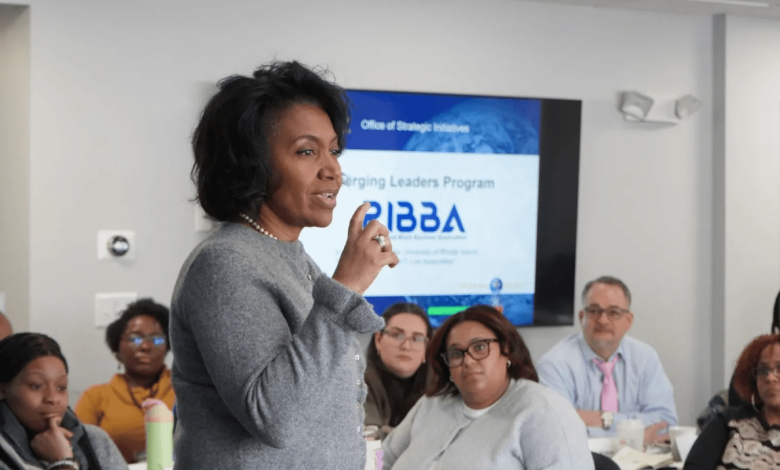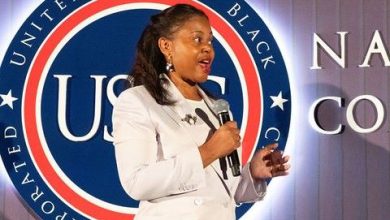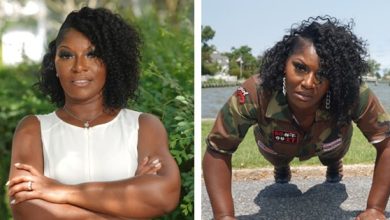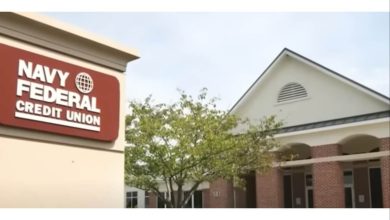Black economic non-profits under DEI fire

President Donald Trump has targeted Diversity, Equity, and Inclusion programs, signing several executive orders to ban DEI initiatives at federal agencies and businesses, and has even threatened to withdraw federal funding from schools that do not remove their DEI programs.
At the local level, nonprofit organizations that engage in DEI or racial justice programming are concerned that the administration will come for them next.
“I don’t want to really think about the adverse impact that could happen, but sadly, if we lost all of our funding, obviously, we would have to close our doors,” said Lisa Ranglin, founder of RIBBA, a nonprofit dedicated to eliminating the wealth gap in Rhode Island through workforce development, job training, increasing access to capital and other resources.
To maintain their tax-exempt status, nonprofits require federal approval from the IRS. Some organizations even receive government funding to carry out their programming.
RIBBA receives federal funding and is tax-exempt, so they frequently communicate with federal agencies. Langlin said that in December, they stopped hearing from their points of contact at the Small Business Administration (SBA).
“E-mails that we’ve sent have gone unanswered because those people that we were interacting with initially are no longer employed,” she said. “So it is very unsettling because it’s an unknown,” particularly in light of the mass layoffs of federal government employees..
Ranglin said that they have made small changes to prevent being targeted by the administration, but maintain their mission of mending economic disparity.
“Instead of saying the Rhode Island Black Business Association, we’re just going by our acronym RIBBA,” she said. “But we are not moving away from our core work. The work that we do is in great demand. The work that we do for the people that are walking through our doors every day, they’re counting on us.”
Other organizations like the African American Chamber of Commerce of New Jersey (AACCNJ) are advising constituents to get their assets in order.
“Business is a very serious engagement, and if you are on the margins, you can be hit with a tsunami and be wiped out. This is not the time to go at this alone,” said Dr. John E. Harmon, Sr., founder, president, and CEO of AACCNJ.
“So if you’re in business, this is not the time to say I don’t do politics, because if you don’t do politics, they’re gonna do you. So your relationships with government agencies, with legislators –– you need to shore that up.”
Attorneys like McGregor Smyth, who is now the executive director of the New York Lawyers for the Public Interest (NYLPI), a community lawyering organization, suggest that nonprofits do internal assessments.
“What you want to do right now as a nonprofit is to look at your internal policies and practices and make sure that they’re consistent with the current law,” he said. “Mostly around the anti-discrimination statute, because that’s the best way to protect your organization and to also engage in [your] mission when it’s justice and equity related.”
Ritu Mahajan Estes, the directing attorney of Public Counsel’s Community Development Project, which provides technical and legal assistance to nonprofits, said that despite the changes, civil rights law remains the same. So, for organizations struggling to reconcile the executive orders with changes to their mission, she said they may find some legal protection in the equal opportunity laws.
“We still have the civil rights laws that we’ve had for decades that ensure that entities are not engaging in discrimination,” she said.
“A lot of our clients who are engaging in racial justice programming, they’re not doing anything unlawful. They’re not violating any laws. They’re not discriminating by having a mission that centers Black and Brown people, or talks about discrimination, or talks about how important it is to provide equal opportunity and avenues for people to succeed.”
But she emphasized that the programs need to be inclusive.
“You want to make sure that you are not making decisions about who to include in your classes based on protected categories, such as race or gender,” she said.
“You can do outreach in certain communities, but it’s important for you to make sure that people from different communities participate in your classes. You want to make sure that you’re not setting up programs where it’s only limited to certain groups.”
Ranglin said she is unconcerned about the legal risks, stating that RIBBA doesn’t exclude anyone from their programming.
“We’re open to the public, we don’t exclude anyone. All of our programs are open to the general public,” she said. “Anyone can sign up for a program, regardless of race, gender, sexual orientation… So no, we’re not worried about anything as it relates to legal ramifications.”
They are actively meeting with constituents to ensure they’re up to date with changes in the administration.
This story is part of the Digital Equity Local Voices Fellowship lab. The lab initiative is made possible with support from Comcast NBCUniversal.
This post appeared first in the New York Amsterdam News.




